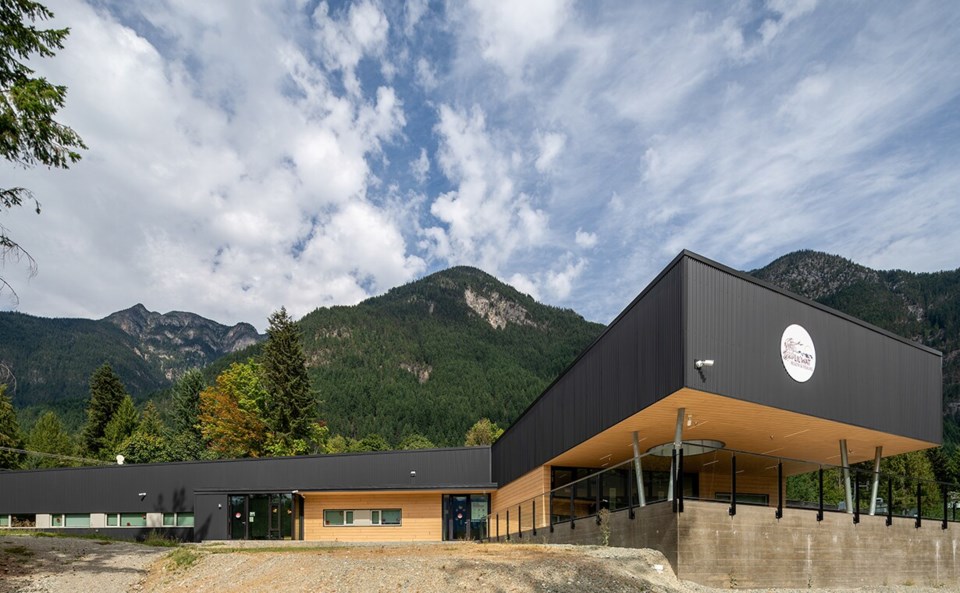In Ucwalmícwts, "es zúmin’" means “to care for.” It’s a name befitting Lil’wat Nation’s new and expanding primary care centre (PCC).
But after only a few months of operation, Lil'wat Nation officials are seeking a new building to merge its two existing es zúmin locations to accommodate new staff and account for future upgrades in service.
“Our communities are growing in this area and our current system isn't able to provide services to all our First Nations communities,” said Lil’wat Health & Healing director Jessica Frank. “We also want to have these new services closer to home, and [offer] outreach services to the community and other places.”
Discrimination in health-care
The es zúmin’ PCC is one of 13 new primary care facilities across B.C. funded by the First Nations Health Authority (FNHA).
"The importance of the es zúmin’ primary care centre is to ensure that we have culturally safe services for Indigenous communities, like traditional healers," Frank told Pique.
A 2020 report from Dr. Mary Ellen Turpel-Lafond found widespread racism towards Indigenous people in British Columbia exists, that it limits access to medical treatment, negatively affects the health and wellness of Indigenous peoples, and disproportionately affects Indigenous women and girls.
The report found more than one in five Indigenous respondents reported feeling "not at all safe" when interacting with hospital social workers and security staff. Indigenous women were 83 per cent less likely to feel "completely safe" when visiting the emergency department.
That discrimination extends to Indigenous healthcare workers, who "face racism and discrimination in their work environments," leading to job dissatisfaction and poor retention, the report said.
Not having adequate local primary care makes emergency department visits more likely. Primary care consists of comprehensive healthcare for non-life-threatening medical issues. The Canadian Health Institute found that 15 per cent of visits to emergency between April 2023 and March 2024 could have been managed through a primary care provider.
But the combination of a province-wide shortage of family doctors, remoteness and discrimination in healthcare work to drive up emergency visits.
According to the FNHA and the B.C. government, the PCCs are an effort to combat structural inequities in care by creating more locally accessible healthcare centres that cater to Indigenous patients.
“Dismantling and eradicating Indigenous-specific racism from B.C.’s health-care system continues to be a key priority for our government,” said former B.C. minister of health Adrian Dix in a release. “Part of this work is expanding access to First Nations-led, culturally safe health care and work in partnership with the local First Nations and FNHA.
"The new [PCCs] will help deliver high-quality, patient-centered primary care for communities around B.C., bringing the care and services people need closer to their homes, and are another important step forward in our journey toward Reconciliation.”
In search of a new facility
Since its opening in Fall 2024, es zúmin’ has operated out of interim facilities in the Pq'usnalcw Health Centre (PHC), located at 11090 Black Bear Road, and the Southern Stl'atl'imx Health Society (SSHS), located at 321 Ir 10 Road.
The PCC currently delivers services to local First Nations through a “hub-and-spoke model”—an approach consisting of a main healthcare campus and one or more satellite campuses. The es zúmin’ hub is at Pq’usnalcw, while the spoke is at the Southern St’atl’imx Health Society. Virtual and mobile clinics for N’Quatqua, Samahquam, Skatin, and Xa’xtsa (Douglas) are also available.
The centre serves the FNHA Southern Stl’atl’imx sub-region—an area that extends 150 kilometres from N’Quatqua in the north to Tipella (Xa’xtsa/Douglas Nation) in the south. This sub-region includes five First Nations communities: the Líl̓wat, N’Quatqua, Samahquam, Skatin and Xa’xtsa (or Douglas) Nations.
A map of First Nations Primary Care Centre jurisdictions is available through the FNHA here.
But Lil'wat Health & Healing is looking to consolidate the es zúmin’ hub-and-spoke model into a new facility in Mount Currie.
"We need a permanent location for es zúmin’, because right now they're temporarily housed," said Frank. "And so we want to look at a new facility to house our current 19 staff members."
Frank estimates a facility with roughly 5,000 square feet would best serve the PCC’s staff and programs, while leaving the door open for future upgrades to service.
“There's other dreams that we have for the facility," said Frank. "Because, our X-ray, our lab and our pharmacies are getting overloaded as well, and so, you know, we hope to be able to enhance those services as well.”
Frank says Lil'wat Health & Healing is looking to BC Housing for a new facility.
Job openings
The First Nations health authority is looking to fill seven full-time positions for the es zúmin primary care centre—nurse practitioner, family physician, a clinical manager, community dietitian, physiotherapist, social worker and transportation coordinator/driver.
The PCC is also looking for housing for those new healthcare workers.
A post made on the Pemberton B.C. Canada Housing Rentals Facebook group on Dec. 9 asked for “rental properties, temporary accommodations, and creative ideas” to help support that new staff.




